Grape-based wine in South Korea is benefiting from societal trends, changes in habits during Covid and more health-driven millennial attitudes to become one of the country’s boom drinks categories, though for now it remains a niche product compared with traditional alcohol categories such as soju and beer.
Last year, for the second consecutive year, it rated second globally in the Wine Intelligence Market Attractiveness Model and has continued to perform strongly into 2022.
At this stage, some context is useful. South Korea is largely a beer and spirits market – only 13% of all alcohol sales are wine. And within the wine category, rice wine dominates – some 85% of the volume.
But while beer consumption is flat and spirits in slight decline, wine sales are growing. And, significantly, that growth is being driven not by rice-based wines (which are in decline) but by still and sparkling grape-based wines, which have shown compound annual growth of 16% and 15% respectively over the past five years, according to IWSR data.
Grape-based wine sales in South Korea might be a niche. But at a time where wine growth is hard to come by, these double-digit returns are eye-catching. The country has more wine drinkers than ever before, jumping from 10.2 million in 2017 to 12.6m in 2022. Moreover, this isn’t just a broad base of barely-engaged consumers; the number of people drinking wine once a week or more has jumped by over 2m over the same period.
This, in other words, is a category that is getting both broader and deeper in its penetration, yet one that still has huge potential, not least because per capita consumption remains extremely low. Being able to convert even a small percentage of the country’s non-wine drinkers, or upselling the existing wine drinking population slightly, could guarantee the wine trade many more years of strong figures.
There are three inter-related issues that are driving the growth: dining, online and health.
Wine is seen very much as a sipping and savouring drink in South Korea, and predominantly one which is drunk (around 80%) at home – either with a meal or as an end-of-day treat. In fact, food-compatibility remains, by some distance, the number one driver to purchase.
Its more measured consumption occasions are a big attraction to health-conscious younger South Koreans, who tend to see wine as more sophisticated. Almost half of all grape-based wine drinkers think it is ‘fashionable’ and ‘important to their lifestyle’ – a drink that says something about them and their aspirations. The country is reckoned to be one of the most receptive anywhere to organic wines, behind just China, Sweden and Germany.
Sales of alcohol online are a relatively recent phenomenon – the government only relaxed the rules to permit it in 2020, and purchases still need to be collected from a shop or restaurant. But still, within a year, one in five Korean wine drinkers had bought bottles this way. And even as Covid restrictions have eased, online sales have remained steady.
The shift online has been good for wine since it allows new consumers to research and choose in a non-threatening environment – a significant factor when a large number of those trying wine for the first time are aged 19-24. Even now, with increased awareness, only 30% of wine drinkers feel ‘competent’ in their knowledge of grape-based wine.
So can these figures continue? Certainly, there are millions of untapped wine drinkers in South Korea, with more – particularly younger legal drinking aged – consumers joining the category every day. And while value is important, the spend on wine on special occasions – both at home and in hospitality – is also growing, suggesting a market which is not restrictively price sensitive.
However, our research suggests that wine’s growth will slow over the next five years, which might make the category vulnerable to economic shocks. Currently, the majority of South Korea’s wine drinkers still expect to be better off next year than this year – a brave call, perhaps, given some of the headwinds buffeting the global economy.
If the economic assessment of the country’s wine drinkers is right, we can expect more new wine drinkers, continued engagement and strong growth. If not, there could be a short period of slowdown even in this most buoyant of markets.
You may also be interested in reading:




Leave a Reply
Want to join the discussion?Feel free to contribute!